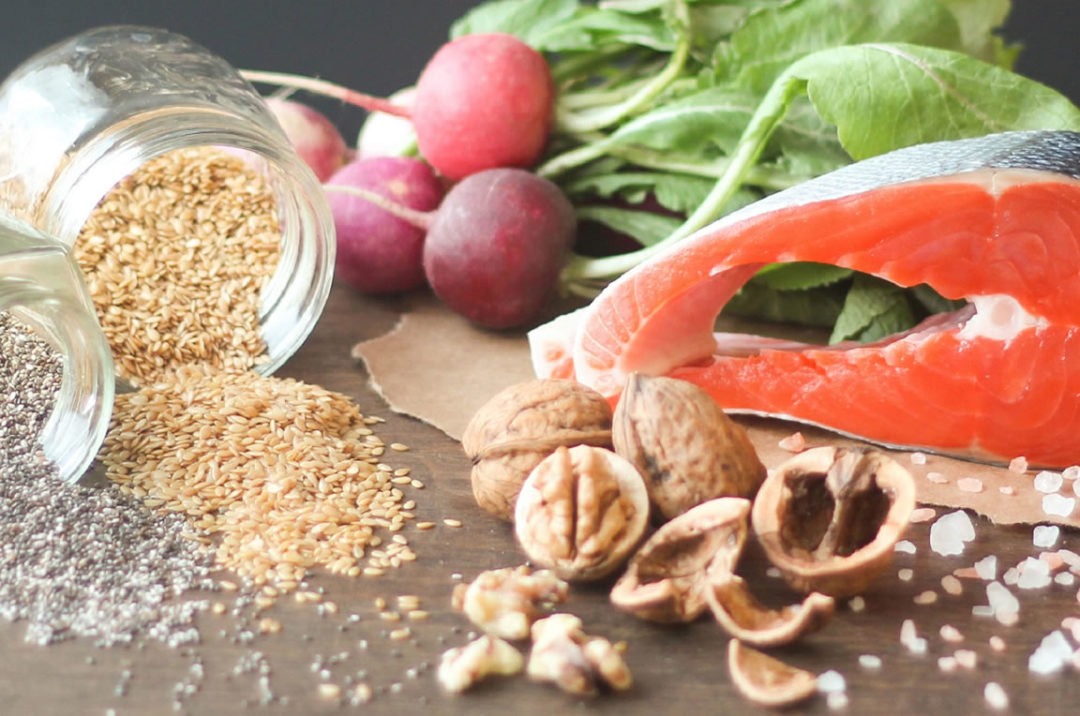The first is dry and scientific and tells you the structure and name of different fatty acids, and is boring as hell.
The second way is to cut out all the science stuff and talk about what’s relevant toyou.
Which way would you like me to go?
I thought so.
I’m writing this for mothers everywhere. As it happens, I know a lot of you. I had a mother myself, who also had a mother, and I loved them both. My fiancé is a mother, we play tennis with a lot of mothers, and we’re friends with a lot of mothers.
And let me tell you one thing I’ve observed about mothers and parents ingeneral: though every so often you’ll meet one who’s a super-smart science nerd and actually wants to know the architecture of the double bonds in the carbon chain that makes up an omega-3 fatty acid,mostof them just want to know one thing: “is it good for my kid?”
So what I’m about to tell you about omega-3 is what I tell the mothers in my life, the people in my family, the people that I love that happen to be parents. This is what I want them to know about omega-3s. This is the stuff I think is important.
Omega-3s are a category of fat; just like “dog” is a category of animal. Omega-3 fats are known as “wellness molecules.” They’re associated with all kinds of good things like lower risk for heart disease, diabetes, obesity. And they’re highly anti-inflammatory (we’ll talk more about that in a minute—it’svery relevant).
Omega-3s are important in the brain for a number of reasons, starting with the cell membrane. Cell membranes are essential structures if you want things to work right—they’re like the doorman at an exclusive nightclub, keeping riff raff out and good stuff in. The health of the cell membrane is vital—it has to be just stiff enough to keep its structure but soft enough to be porous and let signaling messengers (like neurotransmitters) in and out.
That’s where omega-3s come in. They’re a soft, flexible fat, and the cell membrane just sucks them right up. Unfortunately, we rarely consume enough of them.
To make matters worse, we—and our children—are consuming way too much of another fat—omega-6. The relationship of these two fats in our diet is critical—ideally we should consume equal amounts of them. Omega-6s arepro-inflammatory while omega-3s areanti-inflammatory. You actually need both in your diet, but you need them in the proper ratio, which ideally is 1:1. Unfortunately, because we’ve wrongly been told to consume nothing but “vegetable oil” (which is all high-omega-6), we’re consuming about 16 times more of the inflammatory omega-6s than we are of the anti-inflammatory omega-3s.
This is particularly important for parents of ASD kids. Multiple studies have shown that there are significant imbalances between the amount of omega-6 and the amount of omega-3 in the bloodstreams of ASD patients (1), which makes it all the more important to supplement with omega-3. Omega-6s are found in most of the cooking oils we commonly use—corn oil (which is GMO and should be avoided anyway), safflower oil, sunflower oil, peanut oil, canola and soybean oil (both also mostly GMO). We need to cut back on those oils—not necessarily eliminate them completely. Try experimenting with coconut oil, palm oil, ghee, grass-fed butter, olive oil, avocado oil (all of which are terrific for cooking incidentally).
There are three different omega-3 fats and they’re found in different foods and oils; one omega-3 fat is found in flaxseed and flaxseed oil, and the other two are found in fish and fish oil. According to the American Dietetic Association website (2), studies show that children with ASD who take omega-3 supplements have less anxiety and aggression, decreased hyperactivity and impulsivity, longer attention spans, and improvement in language development, reading and spelling skills ( 3,4,5,6). And an analysis of six studies that looked at the relationship between omega-3 fatty acids and autism, published in the Journal of Autism and Developmental Disorders in 2009, found that four of them reported “improvements in a wide range of outcomes including language and learning skills, parental observations of general health and behavior, a clinician-administered symptom scale, and clinical observations of anxiety (7).
One of the challenges is getting kids to eat foods that contain omega-3 (like fish and flaxseeds), so getting enough from food is likely to be a problem. And traditional omega-3 supplements have their own set of challenges. Either they come in a pill—which some kids don’t like to take—or they come in an oil which may or may not be palatable (or disguisable) to your child.
That’s why I think the Omega Swirls by Barlean’s are such a find. They’re basically omega-3 supplements disguised as dessert. They come in a bottle and when you squeeze it, out comes a swirly, smooth, creamy liquid that’s flavored with either mango peach, key lime, lemon, pina colada or a number of other flavor combinations. It’s almost like a smooth fruit compote. You can serve it as a topping on a healthy frozen dessert or throw it into a nutrient-rich smoothie. It’s very biologically available to the body and tastes way better than conventional fish or flax oil.
Plus you can get meaningful doses into your kid. Some practitioners recommend 1.5 gram of omega-3 a day for most pediatric patient populations (8), to which I would add “at least!” And you can’t get that into your kid in pill form. But just 1 1/3 tablespoons (four teaspoons) of any of the swirl formulations will give you just about that amount, with two tablespoons being even better.
Years ago, my mentor—the great, late nutritionist Robert Crayhon—was asked what single habit he thought would be most likely to produce the greatest health benefit for the greatest number of people. Without hesitation, he said this: “Have every expectant mother take omega-3s”. I believe if he were alive today, he’d amend this statement to include their children.
And as someone who lives with two 13-year old twins, I can tell you from personal experience that there’s no better way to do that then to give them a tablespoon of Barlean’s Omega-3 swirls—every single day of their life! In our house, it’s the only omega-3 supplement we can get them to take, which is fine with me because it’s a zero-compromise way to get these all-important “wellness molecules” into the diet of both childrenandadults.
REFERENCES
- Johnson M, Mansson JE, Ostlund S, et al. “Fatty acids in ADHD: plasma profiles in a placebo-controlled study of omega 3/6 fatty acids in children and adolescents,” Atten Defic Hyperact Disord. 2012;4(4):199-204.
- http://www.todaysdietitian.com/newarchives/010713p46.shtml
- Meguid NA, Atta HM, Gouda AS, Khalil RO. “Role of polyunsaturated fatty acids in the management of Egyptian children with autism,” Clin Biochem. 2008;41(13):1004-1008.
- Patrick L, Salik R. “The effect of essential fatty acid supplementation on language development and learning skills in autism and Asperger’s syndrome,” Autism Asperger’s Digest. 2005;36-37.
- Bell JG, MacKinlay EE, Dick JR, MacDonald DJ, Boyle RM, Glen AC. “Essential fatty acids and phospholipase A2 in autistic spectrum disorders,” Prostaglandins Leukot Essent Fatty Acids. 2004;71(4):201-204.\
- Johnson SM, Hollander E. “Evidence that eicosapentaenoic acid is effective in treating autism,” J Clin Psychiatry. 2003;64(7):848-849.
- http://www.ncbi.nlm.nih.gov/pmc/articles/PMC2710498/
- Amminger GP, Berger GE, Schafer MR, Klier C, Friedrich MH, Feucht M. “Omega-3 fatty acids supplementation in children with autism: a double-blind randomized, placebo-controlled pilot study,” Biol Psychiatry. 2007;61(4):551-553.

Jonny Bowden, “the Nutrition Myth Buster” is a board-certified nutritionist and the best-selling author of 15 books including The Great Cholesterol Myth, Living Low Carb, the 150 Healthiest Foods On Earth and Smart Fat. To learn more about healthy living, motivation and nutrition, visit jonnybowden.com.
Note: The statements presented in this column should not be considered medical advice or a way to diagnose or treat any disease or illness. Dietary supplements do not treat, cure or prevent any disease. Always seek the advice of a medical professional before altering your daily dietary regimen. The opinions presented here are those of the writer.
Posted on WholeFoods Magazine Online, 11/3/16










